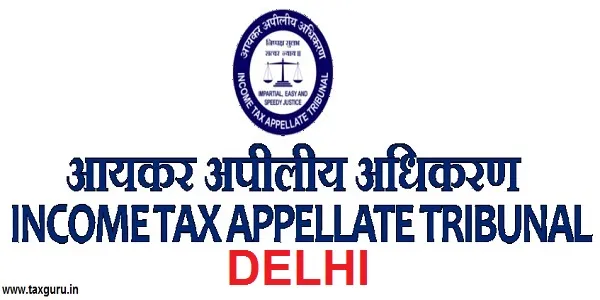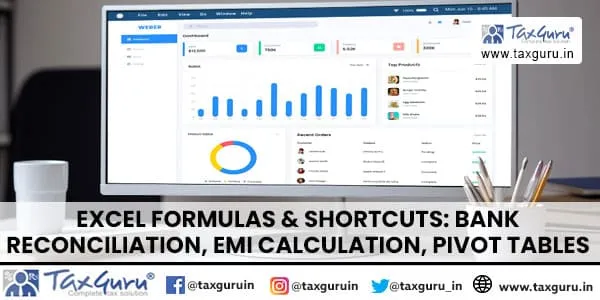Section 56(2) of the Income Tax Act, 1961 inter alia deals with receipts without considerations. Since most of such receipts tantamount to gifts, the provisions are popularly named as those of gifts and deemed gifts. Till 30 09 2009 only sum of money received without consideration was treated as income in the hands of the recipient being either an individual or a HUF. By the Finance No.2 Act, 2009 with effect from 01 10 2009 the provisions were so much expanded that even they included cases of immovable properties received without consideration or for inadequate consideration as compared to stamp valuation. The expanded provisions also include receipts of specified movable properties either without consideration or for inadequate consideration as compared to fair market value.
Pertinent to mention that even under expanded provisions, gifts from specified relatives and under specified exceptions continued to be beyond tax net.
Provisions as contained in section 50C taxing sales of land or building or both operative since 01 04 2002 affecting the vendors of such properties continue.
In the above background, now while framing the Finance Bill, 2010 it seems that the Government has realized the negative effects on genuine transactions of purchases of immovable properties and therefore, now the wiser counsel has prevailed. Therefore, the provision relating to inadequate consideration in transactions of immovable properties is proposed to be deleted. With the result that if an individual or HUF receives immovable property without consideration, the stamp valuation thereof would be taxed as income provided the stamp valuation exceeds Rs.50000/-. But if the consideration is there but inadequate, there would not be any taxation in the hands of the purchaser. However, as stated herein before the seller would continue to be taxed on capital gains on the basis of stamp valuation or sale price whichever is higher. Buyer will not be affected in view of the proposal in the Finance Bill, 2010.
Provisions as inserted by the Finance (No. 2) Act, 2009 also cover receipts, either by way of purchase or otherwise, of specified movable properties namely shares and securities, jewellery, archaeological collections, drawings, paintings, sculptures, any work of art. Now by the Finance Bill, 2010 a new item has been added w.e.f. 01 06 2010 and that is “bullion”. Bullion would include gold, silver, platinum, or palladium, in the form of bars or ingots. Some central banks use bullion for settlement of international debt, and some investors purchase bullion as a hedge against inflation.
In respect of such movable properties it is provided that if the aggregate fair market value of such movable properties received during the year without consideration exceeds Rs.50000/-, then such value is income in the hands of recipient being an individual or HUF. In a case one receives such properties at a price but the price is less than the aggregate fair market value of such properties and if such difference exceeds Rs.50000/- during a year then such difference is an income in the hands of recipient. For purposes of determination of fair market value, a method would be prescribed. Although, the provisions have become effective from 01 10 2009, the method has yet not been prescribed. Till the time method is prescribed, one may take a view that in the absence of prescribed method, the provisions have not become effective.
These provisions concerning immovable and movable properties as enacted by the Finance (No. 2) Act, 2009 were enacted in such a manner that even a purchaser of such movable properties in normal course of his business would have got affected if the purchase was found to be at less than the prescribed fair market value. To remove such hardship, now by the Finance Bill, 2010 it is proposed that these provisions with regard to a property would apply only when in the hands of the recipient individual or HUF such property is a capital asset and not as stock in trade.
Further, so far section 56(2) of the Income Tax Act treats receipts without consideration as income if the recipient is an individual or HUF. Other categories of assesses including a company and a firm have been kept out of the taxing purview. Although in my considered view, such entities cannot receive gift under the general law as well as under the provisions of the Income Tax Act.
A gift necessarily involves a contract because the gift to be valid and complete has to be accepted by the donee to be valid and complete. Section 25 of the Indian Contract Act, 1872 lays down a very basic law that a contract without consideration is void ab initio. Relevant exception for the contract to be valid without consideration is for an agreement in writing, registered under the provisions of the Registration Act, 1908 and such an agreement is on account of natural love and affection. The section does not affect to the gift actually made by the donor to the donee.
A claim of gift by a company cannot sustain as natural love and affection is not possible towards an artificial person. Further, as far as gift of the property is concerned section 122 of the Transfer of the Property Act, 1882 requires that transfer of property by way of gift must be accepted by the donee and inter alia such acceptance must be made during life time of the donor and before the donee dies. The provisions using the words like death of donee are logically in the context of an individual and not in the context of an artificial person. In such a view of the matter, it is not possible for a company to claim gift and therefore receipts of sums of money without consideration may not escape taxation in the hands of a company under other provisions of the Income Tax Act, 1961. However, if the company receives specified movable properties at a price less than fair market value, the new provisions inserted by Finance No. 2 Act, 2009 concerning deemed undervaluation of properties would not cover such company and therefore taxation u/s. 56(2) would not be attracted. The same analogy is applicable to a firm.
Finance Bill, 2010 makes a starting point to tax a firm and a company in a specified situation. The Finance Bill, 2010 proposes to tax a firm or a closely held company when it receives shares of a closely held company either without consideration or at a consideration at less than the fair market value. The provisions will not apply if such shares are received in the course of amalgamations, mergers, demergers and re-organisations. When afterwards such company or firm transfers such shares the valuation whereof either fully or partly subject to income tax, then at the time of subsequent transfer of such shares, the cost of acquisition would be the fair market value which was earlier taken into consideration for taxation u/s. 56(2).
Provisions of section 56(2) that receipts without consideration inter alia from following relatives are not income:
(i) spouse of the individual;
(ii) brother or sister of the individual;
(iii) brother or sister of the spouse of the individual;
(iv) brother or sister of either of the parents of the individual;
(v) any lineal ascendant or descendant of the individual;
(vi) any lineal ascendant or descendant of the spouse of the individual;
(vii) spouse of the person referred to in clauses (ii) to (vi).
Section 56(2) provides that gifts received from non relatives are income but no where in the Income Tax Act it is provided that gifts received from relatives are not income and therefore tax free. Therefore, it is not a case that section 56(2) places the gift from relatives beyond taxing provisions. If gifts are received from specified relatives, the recipient will have to prove genuineness of such gift with reference to identity of the donor, capacity of the donor, source of funds of the donor, etc.
Gifts received from non relatives are generally taxable. However, there are certain exceptions under which gifts received from non relatives are also not taxable.
Gifts received on the occasion of marriage of an individual even from non relatives are not an income. In this context, one would be entitled to take a view that the words “on the occasion of marriage” would have wider connotation than on the date of marriage.
Further following receipts without consideration are also not income :
i. under a Will or by way of inheritance;
ii. in contemplation of death of payer;
iii. from local authority as defined in Explanation to section 10(20);
iv. educational or medical institution or fund etc. referred to u/s. 10(23C);
v. trust or institution registered u/s. 12AA.
A gift is said to be made in contemplation of death when the donor is ill and he expects to die shortly out of such illness and delivers to another possession of the movable property to be kept by another person as gift in case a donor dies of that illness. A gift in contemplation of death can be made of any movable property which the donor could dispose off under a Will. It is possible for the donor to resume such a gift before he dies. Further in a case where donor recovers from the illness during which he made the gift then such a gift will not take effect. Further if the donor survives the person to whom such gift was made then also such gift does not take place.
If such property instead of being given away in contemplation of death is made subject matter of the Will then the bequest under a Will would require executor’s assent to perfect the title of the legatee and will be subject to probate, when applicable.
Gifts in contemplation of death can be made only of a movable property.
Author: CA. Tarun Ghia,
Email: tarunghiaca@yahoo.co.in, ghiatarun@rediffmail.com




















how to determine fair market value of shares of a private limited company as per section 56(2)(vii)
1) What would be the situation in case of Right Issue made by a closely held private company to persons other then share holders, whether it would be counted as renunciation of rights.and taxable u/s 56 .(Related to amendments u/s 56)
2) In case of company issuing warrants and the person is not able to fulfill requirements of warrants , whether same would taxable as receipts u/s 56 in the income of the company issuing warrants. (May not be related to above amendments)